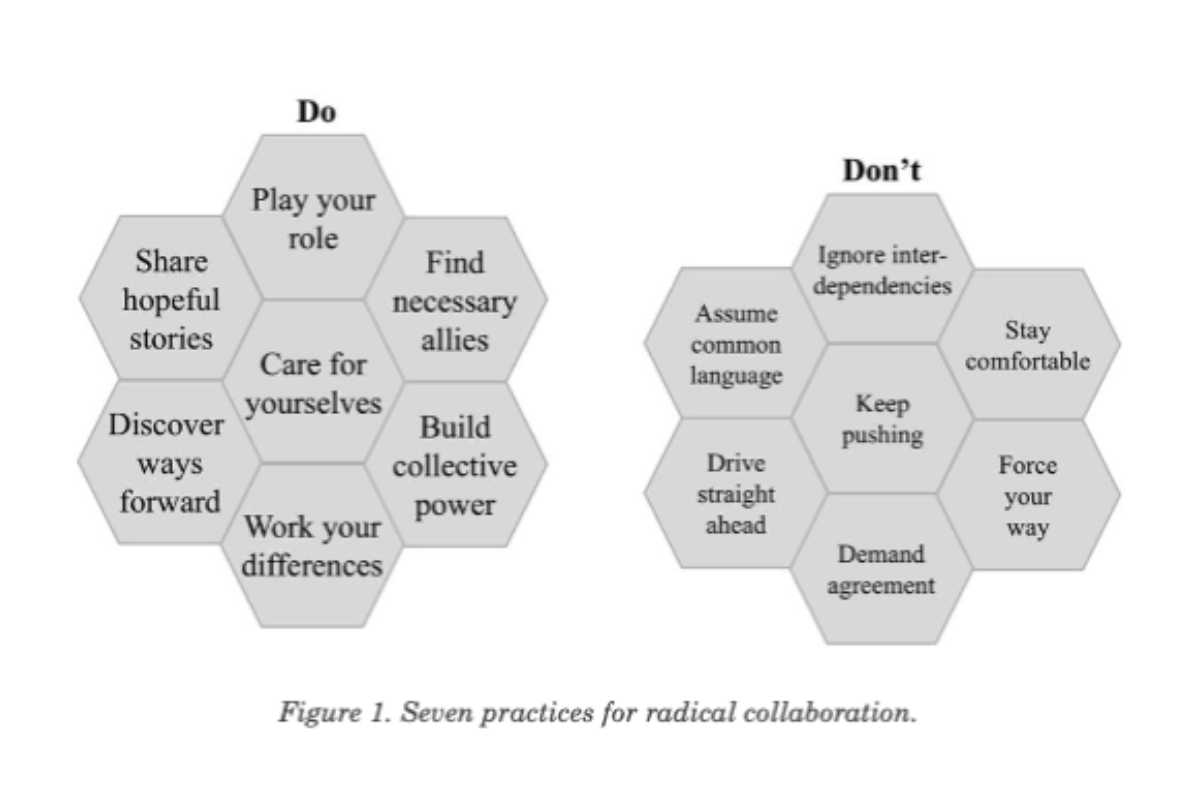
'Radical Collaboration to Transform Social Systems', Adam Kahane
This article by Adam Kahane introduces ‘radical collaboration’ as a transformative approach to tackling systemic challenges. By integrating love, power, and justice, it fosters empathy, empowerment, and fairness among diverse stakeholders. This method aims to align differing interests and capacities, enabling inclusive and impactful systems change while navigating inherent tensions in collaboration.
View resourceSummary
This article by Adam Kahane explores ‘radical collaboration’ as an approach to drive meaningful systems transformation. Unlike conventional methods, radical collaboration combines love, power, and justice to navigate diverse stakeholder relationships and systemic challenges.
Key Components of Radical Collaboration:
- Love: defined as ‘the drive toward the unity of the separated’, love in radical collaboration means fostering empathy and connectedness among stakeholders, encouraging mutual understanding despite differences. This approach is crucial for creating inclusive spaces where diverse actors can find common ground.
- Power: radical collaboration recognises power as the ‘drive to realise oneself’, emphasising empowerment and agency. It encourages each participant to assert their individual and collective strengths while also avoiding coercion, enabling a balanced exercise of influence within the collaboration.
- Justice: justice is the drive to address and reduce systemic inequalities. By engaging all stakeholders in ways that honour fairness, radical collaboration aims to achieve balanced participation, especially for marginalised voices, ensuring that outcomes benefit the broader community.
The approach aims to enable stakeholders to align their diverse interests and capacities toward shared, impactful goals by acknowledging the inherent tension among love, power, and justice.

We’d love to hear from you!
Reach out to one of our team members, and share input and ideas about how we can evolve Understorey.
Get in touch